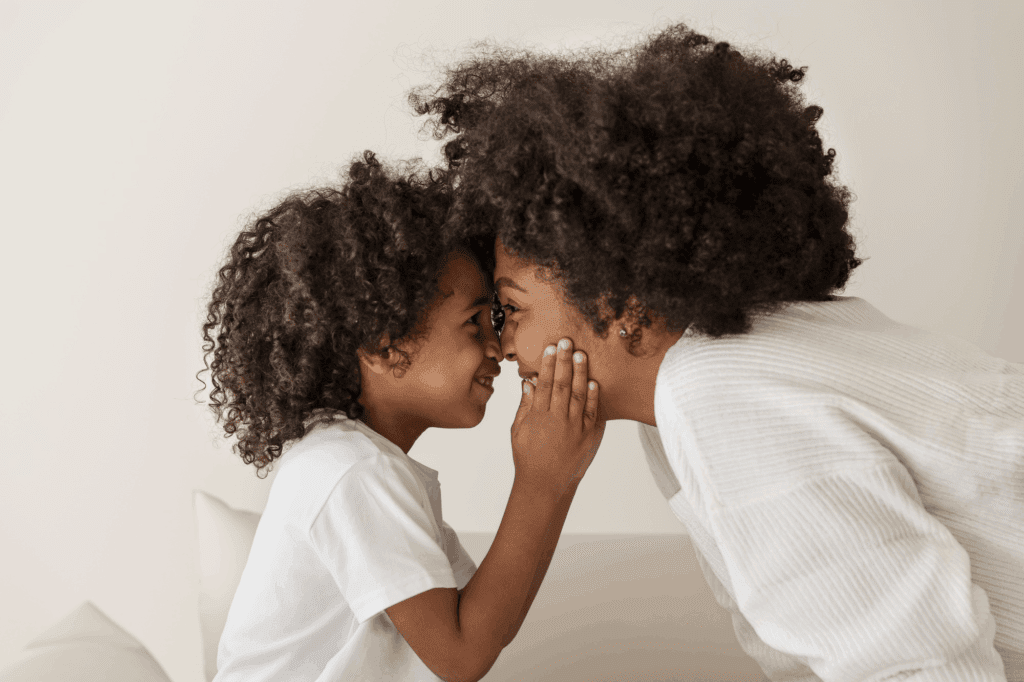Most parents would do anything to protect and nurture their children. From the moment they’re born, we worry about their health, development, happiness, and emotional well-being. We research parenting methods, monitor screen time, adjust diets, and sign up for activities that build character. But often, the most quietly damaging habits aren’t the obvious ones. They’re the subtle behaviors we repeat daily, without noticing the long-term effects. One of the most overlooked yet harmful parenting habits is constant interruption. It doesn’t seem aggressive. It’s not yelling or neglect. In fact, it usually comes from a place of love. Parents interrupt when they want to help, correct, or teach something important. But over time, this well-meaning behavior chips away at a child’s confidence, self-expression, and emotional intelligence. Let’s unpack how this habit develops, how it affects children in ways we don’t always see, and—most importantly- how to stop doing it without becoming a hands-off parent.

Interrupting Sends the Wrong Message
Interrupting a child may not seem serious, especially if you do it gently. But when it happens repeatedly, it sends a clear message: what you’re saying or feeling isn’t important. Even young children pick up on this. Over time, they start to internalize that message and may stop expressing themselves altogether. Children need uninterrupted time to explain, ask, reflect, or even just be confused. If a parent constantly steps in to finish sentences, fix mistakes, or redirect conversations, the child may learn to silence themselves before speaking. They also start looking to adults to validate every idea, which stunts independent thinking. What begins as a casual correction can result in long-term self-doubt.
It Undermines Emotional Resilience
Children experience big feelings daily. Tantrums, fears, joy, confusion, all of it is part of their emotional development. But many parents instinctively jump in to fix those feelings. They soothe immediately, change the subject, or distract the child to make the discomfort go away. While it seems helpful, this habit prevents kids from learning to regulate emotions on their own. Instead of sitting with frustration or sadness, kids get used to being rescued. They may never learn to name emotions, sit with them, and calm themselves down. This leads to teens and adults who are emotionally reactive, overly dependent, or uncomfortable with discomfort. Emotional resilience doesn’t come from avoiding bad feelings; it comes from moving through them.
It Even Shows Up During Play
Playtime is a child’s version of problem-solving, storytelling, and emotional rehearsal. But when parents constantly step in to direct or “improve” the activity, it interrupts a vital developmental process. Maybe the tower looks unstable, or the story makes no sense, but it’s not supposed to be perfect. It’s supposed to be expressive. Frequent correction during play stifles creativity. It teaches kids there’s a “right” way to imagine and discourages exploration. Children who are often corrected while playing tend to become passive. They might wait for instructions or approval instead of following their curiosity. Letting them explore freely without interference is key to helping them develop independence and innovation.
The Real Reason Parents Can’t Stop Interrupting
It’s hard not to step in. Parents are wired to protect, teach, and guide. When a child struggles, the urge to intervene feels automatic. And many of us were raised to believe that “good” parenting means constant correction and direction. But often, this comes from our own discomfort with failure, silence, or emotional intensity. We may fear that letting a child get it wrong will make us look careless. Or that if we don’t jump in fast enough, they’ll spiral. But parenting isn’t about perfect control. It’s about holding space for your child to grow, and grow they will, if we let them. Recognizing the need for control is the first step toward letting go of it.
What Happens When This Habit Continues Unchecked
When a child is interrupted too often, the damage isn’t always obvious at first. But over time, the signs emerge. A child might begin to hesitate before speaking. They may struggle to make decisions, constantly second-guessing themselves. You might notice they avoid creative challenges, speak less around adults, or become overly anxious about being wrong. These aren’t just personality traits, they’re protective behaviors. Children who feel unheard or overcorrected may retreat from expression to avoid rejection. They might stop sharing ideas altogether or rely too heavily on adults and their parenting for validation. The emotional damage may not erupt until adolescence, but the seeds are planted early.
How to Fix It: Learn to Pause
Start by creating space. If your child is talking, explaining, or trying something new, wait. Give them a full 10–15 seconds before responding. It might feel like a long silence, but that space allows them to finish their thoughts and process what they want to say or do. If they’re making a mistake or clearly stuck, try asking a guiding question instead of taking over. Say, “What do you think you could try next?” or “Do you want help or are you still thinking?” This empowers your child to stay engaged and learn through trial, not just correction.

Build Daily ‘Listening Rituals’
Listening is a skill, and so is being heard. Set aside time every day to be fully present with your child. No phones, no chores, no multitasking. Just 10–15 minutes where you listen without interrupting or correcting. It can be during a walk, bedtime, or after school. Let them talk about anything they want, even if it’s nonsense or scattered. Over time, they’ll start trusting that they have space to express themselves. You’ll also learn more about what they care about, how they think, and where they need support.
Let Play Be Messy and Independent
During play, resist the urge to jump in. Unless they’re in danger, let your child lead. Whether they’re building something strange, drawing something wild, or acting out a scene that makes no sense, let it happen. Play isn’t about getting it right. It’s about exploration, emotional rehearsal, and joy. By letting them play without intervention, you give them the freedom to think creatively, solve problems, and develop confidence in their ideas. This freedom is essential for brain development, but it also builds emotional safety. Kids learn they’re trusted to take the lead in their own lives.
Swap Correction for Curiosity
When something doesn’t go as expected, ask instead of correcting. Try saying, “Tell me more about that” or “Why did you choose to do it that way?” These kinds of questions encourage kids to reflect and explain, helping them understand their own reasoning. It also shifts your role from critic to partner. You’re not the one with the right answers. You’re genuinely interested in their thought process. This builds a deeper connection and promotes independent thinking.
Embrace Emotional Check-Ins Without Fixing
When your child is upset, stop trying to fix it. Instead, validate what they’re feeling. Say, “It looks like you’re feeling frustrated right now. That’s okay.” Then offer comfort without pushing for a quick resolution. Over time, this teaches kids that feelings aren’t problems, they’re part of being human. It also helps them build emotional vocabulary and regulation. Eventually, they’ll learn to handle tough feelings without needing someone else to jump in every time.
Watch Your Body Language Too
Even silent interruptions can hurt. Eye rolls, frowns, sighs, and distracted glances all send subtle messages of disapproval or disinterest. Active listening means being fully present, not just physically but emotionally. Lean in, make eye contact, and give verbal affirmations like “I hear you” or “That makes sense.” These small gestures go a long way in building a child’s sense of worth and emotional security.

Apologize When You Slip Up
No parent or parenting style is perfect. If you do interrupt or realize you were too quick to jump in, own it. Say something like, “I shouldn’t have interrupted you earlier. What you were saying matters.” That simple apology teaches humility, repair, and the importance of treating others with respect. It also models behavior you want your child to follow. They’ll learn that making mistakes is human, and that relationships are strengthened by honesty and accountability.
Empowering Your Child Starts With Listening
The parenting habit of constant interruption is subtle but powerful. It grows from a place of love but can quietly damage a child’s emotional and cognitive development. When we interrupt too often, we teach our children that their voice isn’t enough, that their process doesn’t matter, and that they need external approval to move forward. But it doesn’t have to stay that way. By learning to pause, listen, reflect, and hold space, you can shift the dynamic entirely. You’ll raise a child who’s more confident, more expressive, and more capable of handling life’s challenges. And you’ll become the kind of parent who listens not just with their ears, but with their presence and better their parenting.










